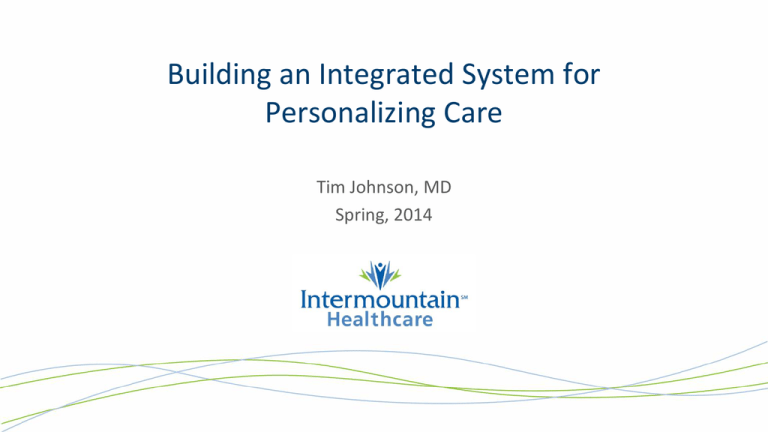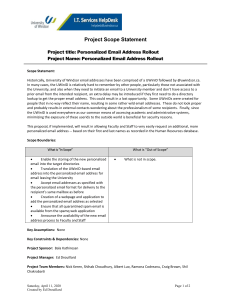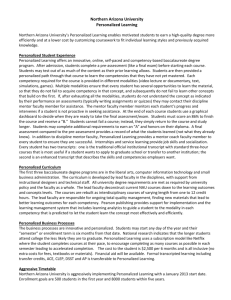View the presentation - University of Utah Health Sciences
advertisement

Building an Integrated System for Personalizing Care Tim Johnson, MD Spring, 2014 Intermountain Medical Group • 1,056 physicians • 342 primary care • 491 secondary care • 86 hospitalists • 17 radiologists • 120 urgent care • 265 advanced practice clinicians • 81 primary care clinics Dual Model for the Medical Home Distributed Model Intensive Model Distributed Model: Personalized Primary Care Intermountain Medical Group and SelectHealth Modeled on 2011 PCMH NCQA Standards Team members • Primary Care Clinician • RN Care Manager • MA Health Advocate(s) • Advanced Practice Clinicians • Doctor of Pharmacy • Mental Health Integration Personalized Primary Care Implementation 2010 - 2014 • • • • 64 adult primary care clinics 17 pediatric clinics 345 physicians and advance practice clinicians ~100 care managers and health advocates Hybrid model: central and region leadership Level 2 and level 3 within 2-3 years Personalized Primary Care: Results Allowed Per Member Per Month PPCs All Clinical Quality 20% Total Cost Trend* 1 2 3 Years after Implementation 64% 62% 60% 58% 56% 54% 52% 50% 48% Intermountain diabetes bundle: HgbA1c < 8% LDL < 100 BP < 140/90 Annual nephropathy screen Eye exam every 2 years 35% 2013 Stretch Goal Patient Satisfaction *Preliminary results, risk-adjusted and normalized for contractual payment differences Intensive Model: Personalized Care Clinic • An outpatient clinic that provides intensive medical, behavioral, and social management for Intermountain’s high-risk patients • Patients in the top 5-10% of costs for 2 of the last 3 years Personalized Care Clinic: The Team • • • • • • Internal Medicine Physician Palliative Care Physician (0.2) RN Care Manager Psychiatry APRN LCSW Pharmacist • • • • • 2 Medical Assistants PSR Clinic Manager Assistant Region Operations Officer Region Medical Director Personalized Care Clinic: Process of care • Acts like a primary care office with more resources to coordinate care, address mental health conditions, and manage complex medication issues • Ensure patients receive care in appropriate setting – focus on acute care utilization • Coordinate and collaborate with all of the patient’s specialists • Committed to eliminating all avoidable health care emergencies Your comments and questions…











